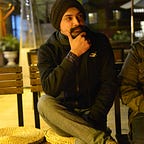Gather ye rosebuds while ye may
Memento Mori
Memento mori (Latin for ‘remember that you [have to] die’) is an artistic or symbolic reminder of the inevitability of death.
Kubler-Ross warns that denying death can lead us to live empty, purposeless lives: “It is the promise of death and the experience of dying, more than any other force in life, that can move a human being to grow”. The reminder of mortality and the ephemeral nature of our life puts our life in perspective.
Do not go gentle into that good night
Morris “Morrie” S. Schwartz was an American professor of sociology at Brandeis University and an author. After he began to lose control of his body to ALS, Amyotrophic Lateral Sclerosis, also known as Lou Gherig’s disease, he takes it upon himself to teach the world how to live in the face of death. In the memoir, Tuesdays with Morrie, written by Mitch Albom about a series of visits Albom made to Morrie, Morrie confronts his own death and realizes that he has not fully appreciated what he had. He recognizes, in tears, the opportunities he missed to love, and the mistakes he made that he cannot correct, such as his failure, out of pride, to forgive an old friend for avoiding him during a sickness.
Randy Pausch, when he was diagnosed with terminal pancreatic cancer found himself fantasizing about giving the last lecture that would be the oratorical equivalent of a retiring baseball slugger driving one last ball into the upper deck. As he says to his wife Jay: “I have a chance here to really think about what matters most to me, to cement how people will remember me, and to do whatever good I can on the way out.” If he were to tell his story with passion, he felt that his lecture might help others find a path to fulfilling their own dreams as he had managed to fulfill his childhood dreams.
At the age of thirty-six, on the verge of completing a decade’s worth of training as a neurosurgeon, Paul Kalanithi was diagnosed with stage IV lung cancer. One day he was a doctor treating the dying, and the next he was a patient struggling to live. As a doctor, he understood anatomy, metastases, cancer-survival rates, treatments and could name each muscle as it spasmed: erector spinae, rhomboid, latissimus, piriformis… to stave off tears from searing back pain. When Kalanithi learns of his cancer he wants to know how long he has: if it is three months, he will spend time with his family; one year, and he will write a book; ten years, and he will go back to medicine.
We have two lives, and the second begins when we realize we only have one.
Morrie was a sweet old man who loved to dance and appreciated the little things we take for granted. As he nodded toward the window with the sunshine streaming in, he said to Mitch, “You see that? You can go out there, outside, anytime. You can run up and down the block and go crazy. I can’t do that. I can’t go out. I can’t run. I can’t be out there without fear of getting sick. But you know what? I appreciate that window more than you do.” We’re so wrapped up with egotistical things, career, family, having enough money, meeting the mortgage, getting a new car. We’re involved in trillions of little acts just to keep going. So we don’t get into the habit of standing back and looking at our lives and saying, Is this all? Is this all I want? Is something missing?”
Time is all we have. We cannot change the cards we are dealt, just how we play the hand. In his book, The Last Lecture, Randy Pausch urges us to manage time like we manage our money. Time seems infinite when you’re a kid, elusive when you’re an adult, and precious when you’re near death. He warns us that “Time is all you have. And you may find one day that you have less than you think.”
Human knowledge is never contained in one person. It grows from the relationships we create between each other and the world, and still, it is never complete. Samuel Beckett’s seven-word antiphon “I can’t go on. I’ll go on” was the guiding hand that Paul Kalanithi grasped onto when times were hard.
How can you ever be prepared to die?
Everyone knows they’re going to die but nobody believes it. If we did, we would do things differently. Every day ask yourself “Is today the day? Am I ready? Am I doing all I need to do? Am I being the person I want to be?”
Invest in the human family, Invest in people. Build a little community of those you love and who love you. Forgive yourself. Forgive others. Ultimately it boils down to whether or not you lived a meaningful life. Devote yourself to creating something that gives you purpose and meaning.
According to Victor Frankl, meaning comes from three possible sources: purposeful work, love, and courage in the face of difficulty. Everything can be taken from a man but one thing: the last of the human freedoms — to choose one’s attitude in any given set of circumstances, to choose one’s own way. As Nietzsche said, “He who has a why to live can bear almost any how.”
Start living your second life. And remember that you have to die.
References:
Memento mori. (2021, March 11). Retrieved March 30, 2021, from https://en.wikipedia.org/wiki/Memento_mori
KÜBLER-ROSS, E. (1975). Death: The final stage of growth. Englewood Cliffs, NJ: Prentice-Hall.
Albom, M. (1997). Tuesdays with Morrie: An old man, a young man, and life’s greatest lesson. New York: Doubleday.
Pausch, R., & Zaslow, J. (2008). The last lecture. New York: Hyperion.
Kalanithi, P. (2016). When breath becomes air. New York: Random House.
